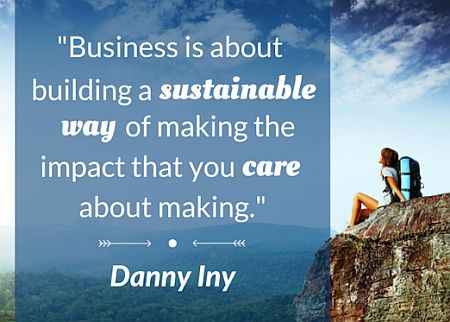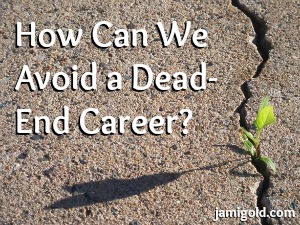Back when we first started on our writing journey, we might have been writing for ourselves. Maybe we had a cool idea we wanted to capture. Maybe we wanted to see if we could actually write a story. Or maybe we wanted to give the voices in our head a place to live and grow. (That last one applies to me. *smile*)
But for many of us, we expanded our goals somewhere along the line. Instead of writing only for us, we now have additional purposes in mind.
As soon as we look beyond ourselves and think of sharing our writing with others, our focus changes—at least a bit. We might…:
- work with a beta reader or critique partner
- write a query letter to pursue traditional publication
- submit directly to publishers
- publish on our site or a site like WattPad
- find an editor or cover artist to make our story more appealing
- list our book for sale on Amazon or another retailer, etc.
Each of those choices is a commitment to a purpose outside of ourselves. We’re now at least partially focused on what others think of our work and might even be trying to sell our work.
That means we’re one step closer to thinking of our writing beyond just being a lark that we’re doing because we feel like it. The question is, are we ready with a plan that will support that next step and the steps after that?
The First Step: Thinking Like a Business-Person
Ugh, really? Do we have to? What if we don’t have a business mindset? (I can hear it all now… *grin*)
The truth is that whether we want to think of ourselves as business people or not, as soon as we take one of those actions above, we’re turning our writing into a product. We might still give our work away for free or decide not to publish it at all, but at those points above, we’re thinking of our writing as something to be consumed by others—i.e., a product.
Did you shudder in horror at that thought? *smile* Many of us would rather think of our stories as our babies or as artistic endeavors, not as products. That can sound so cold and calculating.
But the business mindset doesn’t have to be that way. Some people paint all businesses and business people with a broad brush that makes them out to be greedy, selfish, single-minded, etc. Understandably, we might recoil from the idea that our creativity would get anywhere near that concept.
Yet we can be a business person and still be an artist. Really. *smile*
The Difference Our Goals Make
I’ve written before about the differences between artist-authors and professional-authors, but as I mentioned in that post, the choice isn’t exclusive. For all my posts about business plans and branding, I also have posts about all aspects of writing craft. In other words, I’m a mix of the two extremes.
I’d guess most long-term writers are a combination of artist and business-person. Those who start off as pure artist-authors can’t spend unlimited time on a non-paying activity. At some point, they’d have to either limit their writing time to focus on their livelihood, or they’d think about how to make the time investment worth it.
Those who care only about the money would be equally rare. Maybe they started as a speculator, tempted by a “get rich quick” scheme touting the “new gold rush” of self-publishing. When they discover the truth isn’t quick or rich, they’ll lose interest and move on to something else. Or if they do get lucky with a lot of income, they’ll get bored if there’s no artist’s passion driving their work.
In short, neither extreme is sustainable. That’s an important concept because it gives us a way of thinking of ourselves as business-people without even a hint of the mercenary stereotypes.
How Do We Sustain Our Dream of Writing?
I really liked this quote by Danny Iny, a marketer who emphasizes people, connections, and relationships more than money:

Truth… If we want to continue writing, we need to have a sustainable way to continue.
Short-term goals won’t cut it. A plan to work ourselves to the bone will lead to burnout over the long run. We can’t count on income from this book bringing in enough money to afford a second book. Etc., etc.
Thinking about how to have the ability to continue to write is thinking like a business-person while acknowledging our artistic desire:
- At the avoid-all-business-stuff extreme, we could give every story away for free, but we need a plan somewhere else in our life to make that approach sustainable. Do we make money in different ways? Do we live on our parents’ couch? Do we ask for “pay what you want” donations?
- At the all-business-all-the-time extreme, we could focus only on making money, but if we’re over-charging compared to the market, that’s not sustainable either. People won’t support businesses that charge too much, and competitors will come in and undercut those high prices.
Again, neither extreme is sustainable long term. If we want a long-term career, we need a long-term plan.
I also like the above quote because it embraces the artist’s side of why we’re doing this at all. We want to make an impact with our words. We’re passionate and care about sharing our words.
So the best long-term plan for us probably has a mixed focus:
- We need to find the place between the artist-author and professional-author extremes where we can share our work with others by using a sustainable plan—one that allows us to continue writing and continue sharing and continue making an impact.
Each of us might be more comfortable somewhere different along that spectrum, but long-term, we need to find the balance of artist and business-person that works for us.
How Do We Come Up with that Long-Term Plan?
Are we panicking yet? “Wait! I don’t even know what I want to be when I grow up yet. How can I come up with a long-term plan for writing?”
Don’t worry—we don’t have to come up with a detailed plan. *smile*
Coming up with a long-term plan might just mean that we’ve thought through:
- our priorities (writing vs. school/day job vs. family vs. other hobbies, etc.)
- our goals (income vs. number of readers vs. reviews, etc.)
- what our ideal life balance looks like
- what aspects of writing make us happy
- what we could change to be even happier
- what we’re willing to sacrifice
- what writing goals and commitments won’t lead to burnout
- what schedule we could maintain indefinitely, etc.
Why Is a Long-Term Plan Important?
What we’re willing to sacrifice (watching TV, etc.) or commit to (2K words a day, etc.) short term can be very different from what we’re willing to sacrifice or commit to long term. We can certainly make short-term sacrifices and commitments too, but somewhere in the back of our head, we need to think about the expiration date for those.
If we’re looking for buy-in from our families, the difference between short- and long-term sacrifices can be critical. Support from our family to dedicate every hour of every weekend to writing during NaNoWriMo is different from asking for writing-weekends indefinitely.
I’ll tell you right now that my publication schedule of 4 books this year will not be continued. I managed to pull it off this time because I already had those books written. This year has been full of short-term sacrifices to make that schedule work, but I wouldn’t want to continue those sacrifices forever. In future years, I’m aiming for 2 new novels a year.
We don’t want to be one of those who makes commitments to our publishers or readers and then flake. The consequences of making—and then missing—deadlines can be major.
When we’re making long-term decisions, it’s better to think about what schedule and commitments we could keep up with long term. That kind of thinking can keep us from making decisions that will leave us broke, burned out, frustrated, or feeling stuck, lost, or like a failure.
Focusing too much on our artist side or too much on our business side can cause problems and lead to an early end of our writing career. If it’s important for us to be able to write for many years to come, then we should think about how we can sustain our writing over the long term. *smile*
Do you know writers who dropped out or failed because they didn’t think long term? Do you agree that the best long-term plan would have a mix of artistic passion and business logic to be sustainable? Do you have a long-term plan? What aspects are easiest for you to think about? Which aspects are the hardest?

